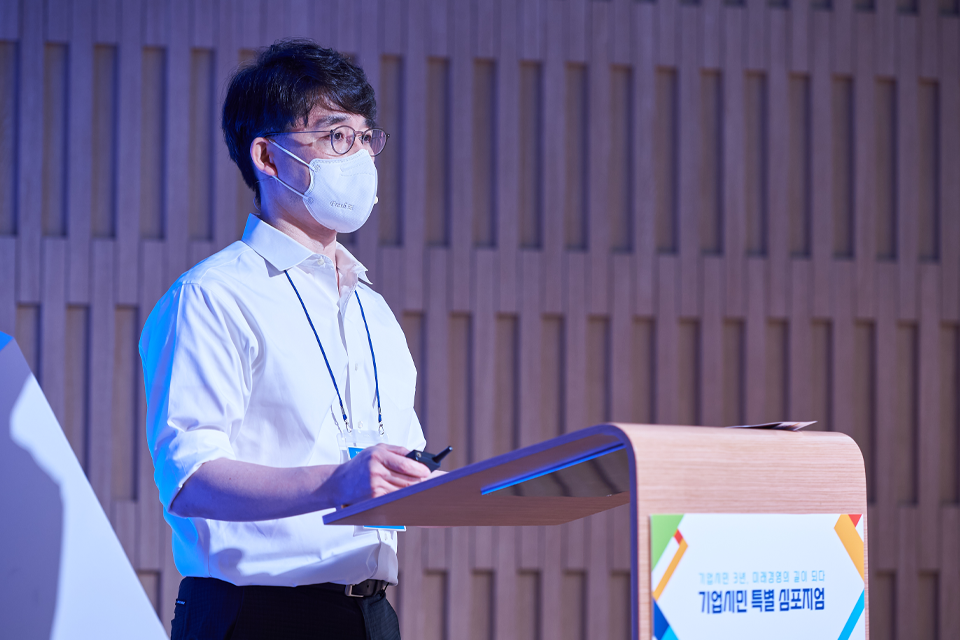
To commemorate the opening of the CHANGeUP GROUND Pohang, on July 23rd, Professor William P. Barnett and Professor Hyun-sang Shin gave lectures under the theme of the value and performance of POSCO’s management philosophy, Corporate Citizenship. POSCO Newsroom delivers the lectures in detail!
The next site to visit is the special virtual lecture by Professor Hyun-sang Shin, a professor at Hanyang University Business School and the CEO of Impactree Search Lab, under the theme of ‘Evolution of POSCO: POSCO’s Transformation towards Corporate Citizenship’. Let’s take a look at how POSCO has changed, from the differences between its past and present perspectives on corporate philanthropy to an analysis of its management philosophy of corporate citizenship by looking back on its footprints.
l POSCO’s past, present, and future, “POSCO leaps through time!”: Professor Hyun-sang Shin
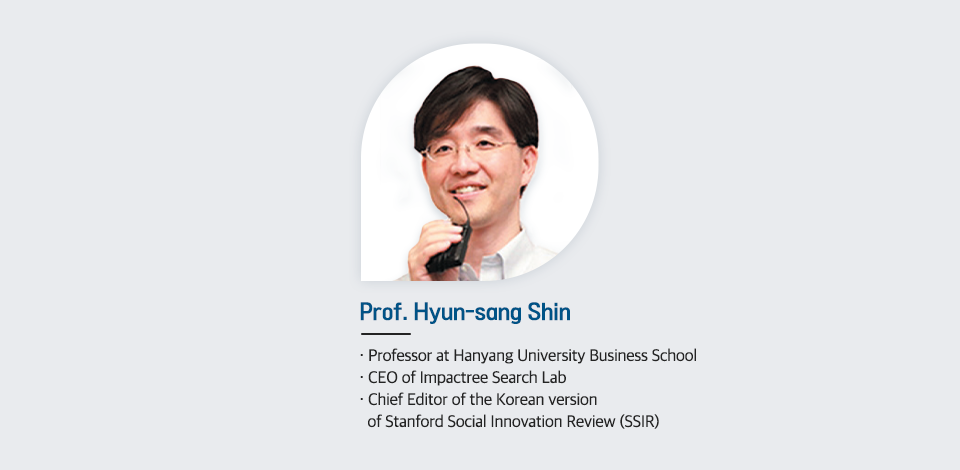
In this lecture, Professor Hyun-sang Shin analyzed POSCO’s management philosophy, Corporate Citizenship, by dividing it into three periods – ▲Before privatization ▲Globalization ▲After corporate citizenship declaration – and suggested the future direction.
Before talking about POSCO’s corporate citizenship, he introduced the four viewpoints on corporate philanthropy and explained the differences between the past and the present in each viewpoint. As time goes by, each viewpoint faces limitations. However, he said that corporate citizenship, the last of the four viewpoints and POSCO’s management philosophy, suggests a solution to the limitations arising from the other three viewpoints.
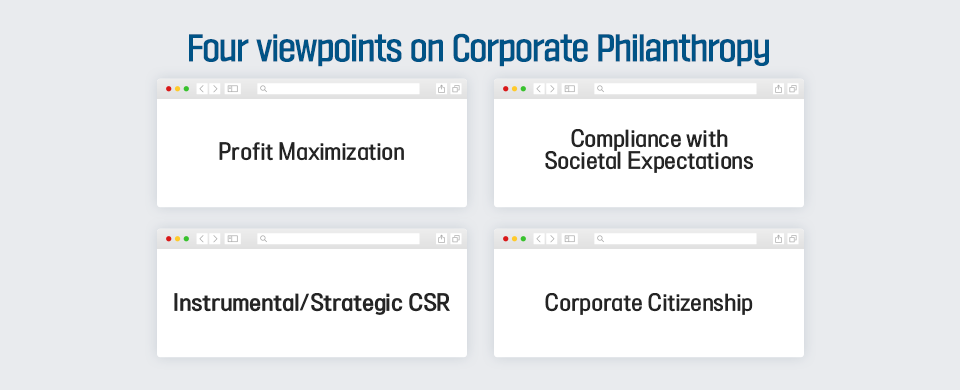
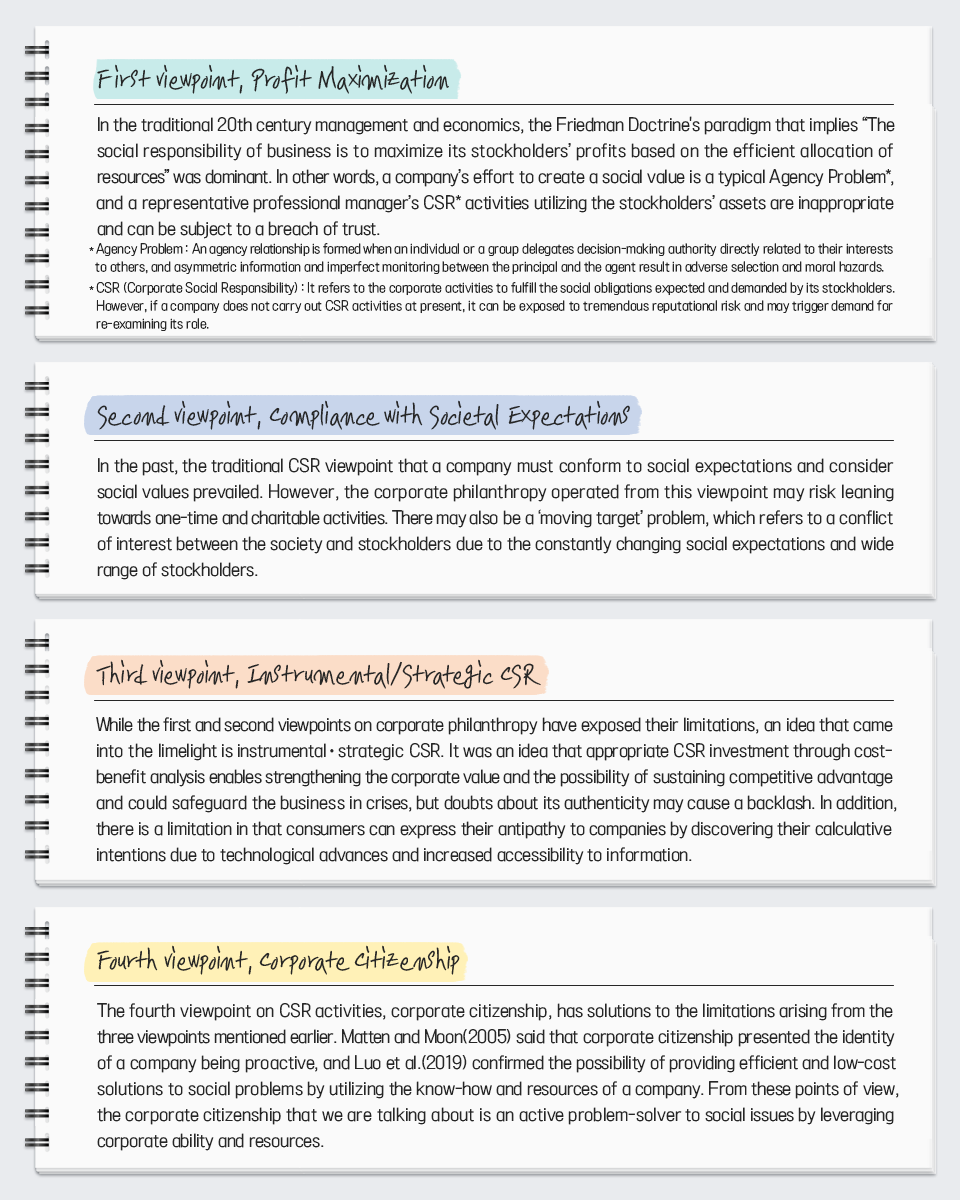
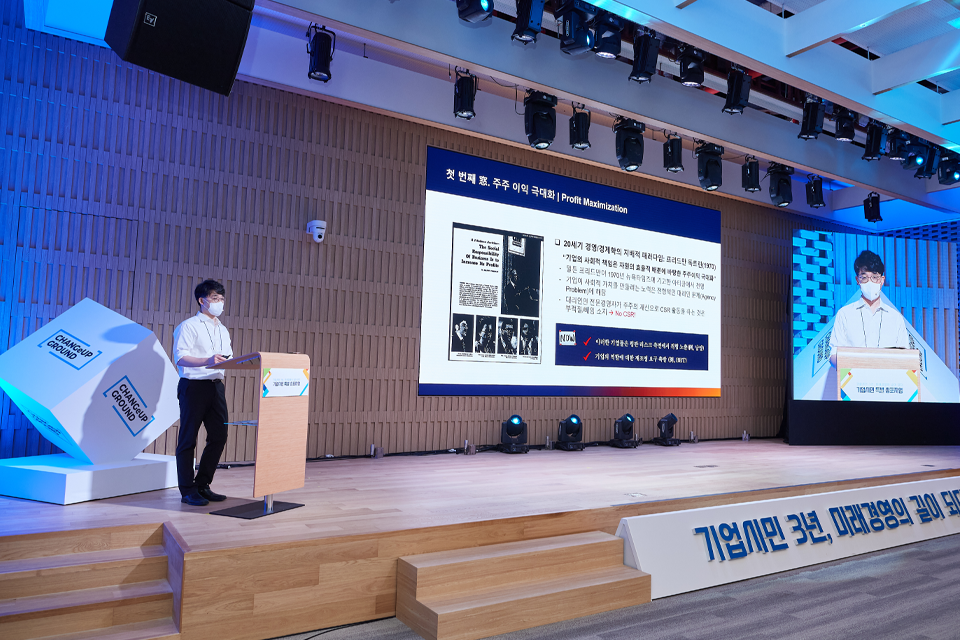
If a company adopts a viewpoint of corporate citizenship for corporate philanthropy, the next thing to consider is what kind of corporate citizenship it will pursue! Professor Hyun-sang Shin shows different types of corporate citizenship based on two familiar examples.
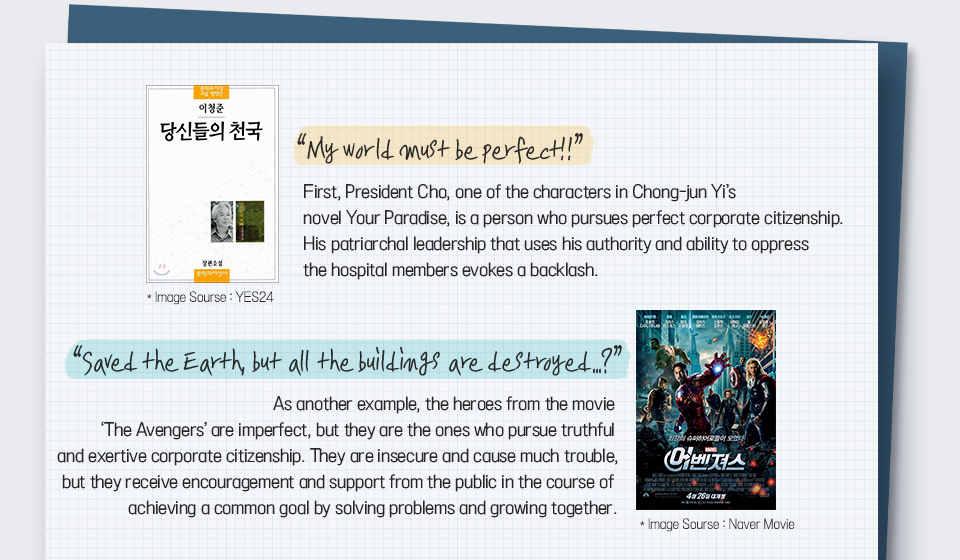
Authoritative corporate citizenship VS Imperfect but truthful and exertive corporate citizenship. Today’s corporate citizenship needs to contemplate which of the two directions it will be heading towards. If it moves towards the direction of imperfect but truthful and exertive corporate citizenship, how will it grow and develop, and how can it be evaluated and get feedback? Professor Hyun-sang Shin’s answers were in the ‘Novel Solutions to Social Problems’ by Professor James Phills of Stanford University.
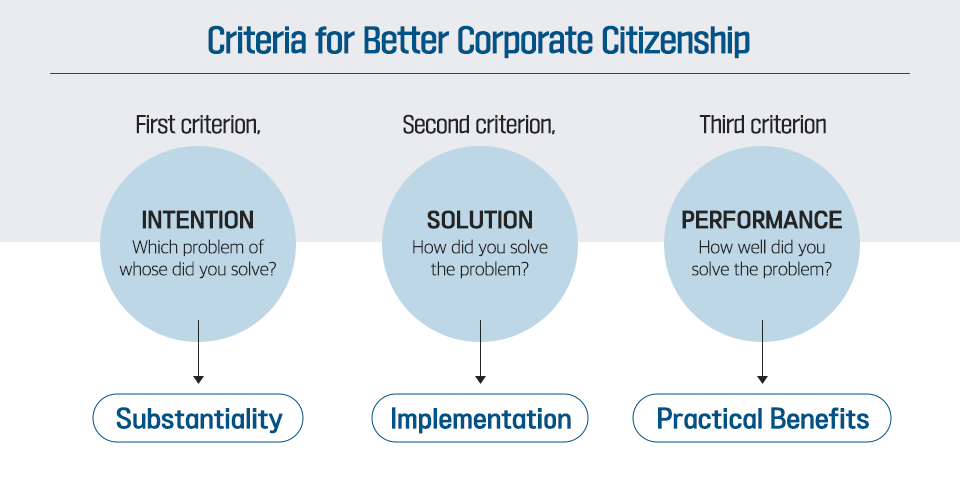
The evaluation criteria for the cases of corporate citizenship presented by Professor Phills consists of three categories: Intention, Solution, and Performance. Based on this, Professor Hyun-sang Shin gave the analysis result of POSCO’s corporate citizenship by dividing it into three periods: Before privatization, Globalization, and After corporate citizenship declaration.
1. INTENTION: The analysis result of ‘Which problem of whose did you solve?’ 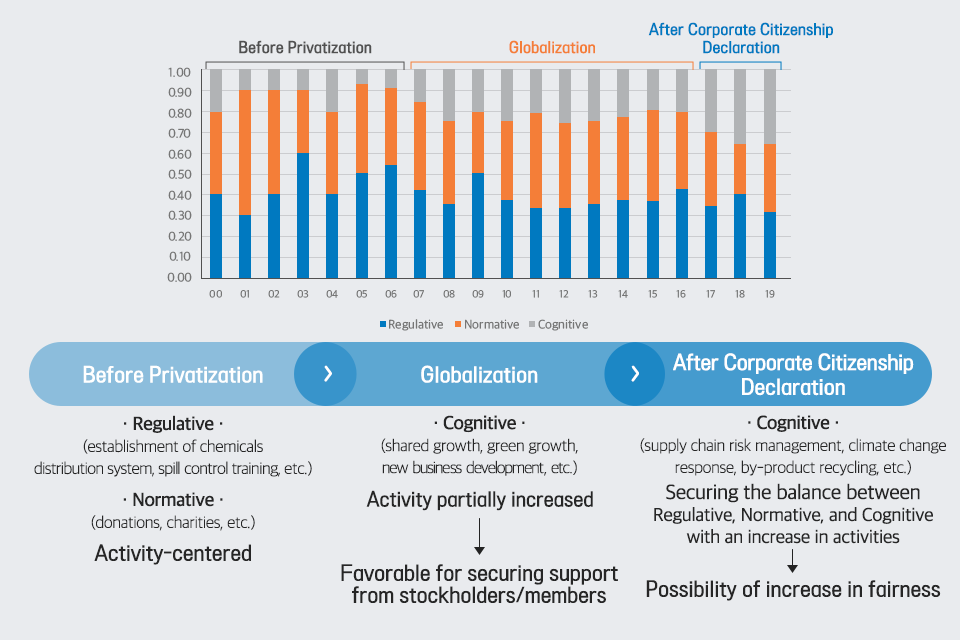
To analyze the first criterion, Professor Hyun-sang Shin used W. Richard Scott’s Three Pillars of the Institutional Framework. This framework suggests that society consists of three pillars: Regulative (compliance with the law), Normative (embrace social needs and expectations), and Cognitive (support and appreciation from members, stockholders, and customers/clients). As an organization could collapse without getting resources and legitimacy from each pillar, the balance between the pillars has been emphasized. After corporate citizenship declaration, POSCO is gradually securing the balance between the three pillars with an increase in activities such as supply chain risk management, climate change response, and by-product recycling.
2. SOLUTION: The analysis result of ‘How did you solve the problem?’ 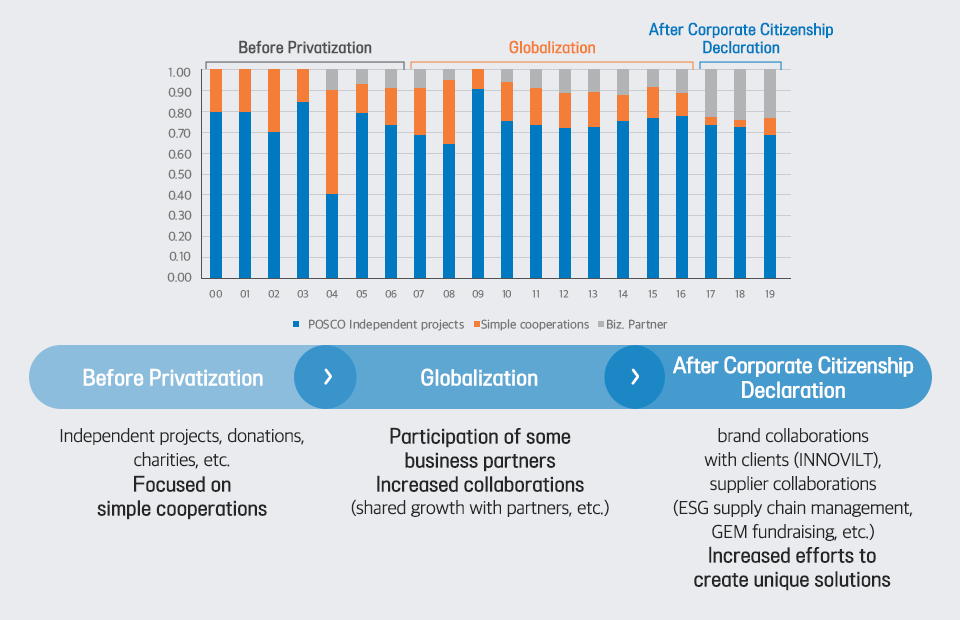
In this category, collaboration with partners in corporate philanthropy is increasingly important. POSCO’s corporate philanthropy before privatization was more focused on simple cooperations such as independent projects or charities, and it went through the globalization period when it increased collaborations with some business partners. After the declaration of corporate citizenship, brand collaborations with clients such as INNOVILT and supplier collaborations such as ESG supply chain management and GEM fundraising increased. More collaborations with business partners imply a positive change towards the establishment of a win-win structure.
3. PERFORMANCE: The analysis result of ‘How well did you solve the problem?’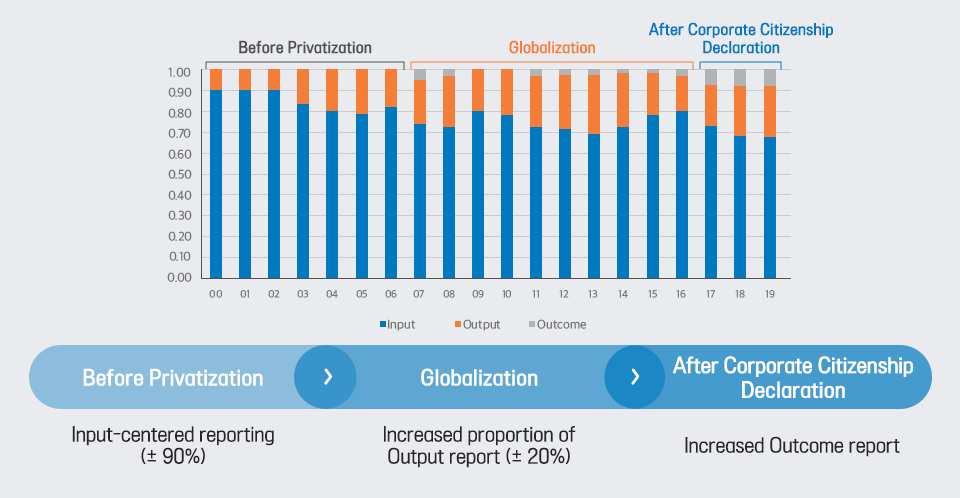
Professor Hyun-sang Shin emphasized the excellent use of the Five-Step Logic Model of Input→Activity→Output→Outcome→Impact to create a desirable change in this category. He explained the logic model by applying it to university students’ free tutoring service to underprivileged students. The input was how much resources the company invested in the university students’ volunteer system, the output was how much time the university students spent on the volunteer service under the company’s investment, and the outcome was whether the university students’ free tutoring service made much improvement in grade and satisfaction of the underprivileged students.
As you can see in the graph, POSCO started to get outcome reports on corporate philanthropy from the time of globalization, and the proportion of the report increased after the declaration of corporate citizenship. Although the increase in outcome implies a fairly positive change, Professor Hyun-sang Shin said that the company is still paying less attention to the outcome compared to the global standard. He suggested POSCO focus more on the outcome for its future development and also emphasized that the outcome should be applied to a solid strategy for business improvement so that the members can truly accept it.
In addition, he said that business outcomes might lead to an unintended way in the changing society and once again highlighted the importance of the authenticity of a company in those situations. The authenticity can be achieved through securing fairness with the balance between the three pillars of Regulative, Normative, and Cognitive, establishing a win-win structure through collaboration with business partners, and expanding outcome reporting into actual strategies in earnest.
POSCO Newsroom’s virtual lecture notes that delivered a meaningful lecture by Professor Hyun-sang Shin, who analyzed POSCO’s history of corporate philanthropy based on the viewpoint of corporate citizenship, ends here! We hope you had a meaningful time learning more about POSCO’s corporate citizenship.

